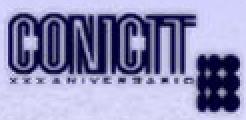|
|

|
|

|
US/Venezuela Workshop on High Performance Computing 2000
Seminario EEUU/Venezuela de Computación de Alto Rendimiento 2000
David Padua
University of Illinois at Urbana-Champaign

| |
Challenges in Compiling for Scientific Computing
Abstract
Since the introduction of Fortran in the 1950s, scientific computing has been
a driving force behind compiling technology. Many compiler optimization
techniques, like strength reduction, were developed to improve the
performance of loops in numerical codes. Also, dependence analysis was
originally developed to detect parallelism in numerical codes, and a number
of strategies have been developed to compile numerical codes for
distributed-memory multiprocessors. Despite the progress in computer technology
over the last fifty years, there are still unfulfilled dreams. One is the
automatic generation of programs from mathematical specifications. Although
there are powerful packages, like Mathemat- ica, that are capable of deriving
closed form results, numerical answers usually require programming (that
sometimes can be complex), even for relatively simple problems. A second
dream is the automatic restructuring of programs for parallel execution and
locality enhancement. The process of developing effective parallel codes and
improving locality is still quite laborious and programmers have very few
powerful tools available to ease this burden. A third postulated important
goal is the development of techniques to facilitate code reuse from simple
library routines to complete applications to be combined into com- plex
numerical simulations. The nature and perspectives for success in these
three impor- tant directions will be discussed.
Last modified:
Fri Nov 5 09:39:17 CST 1999
by
bart



